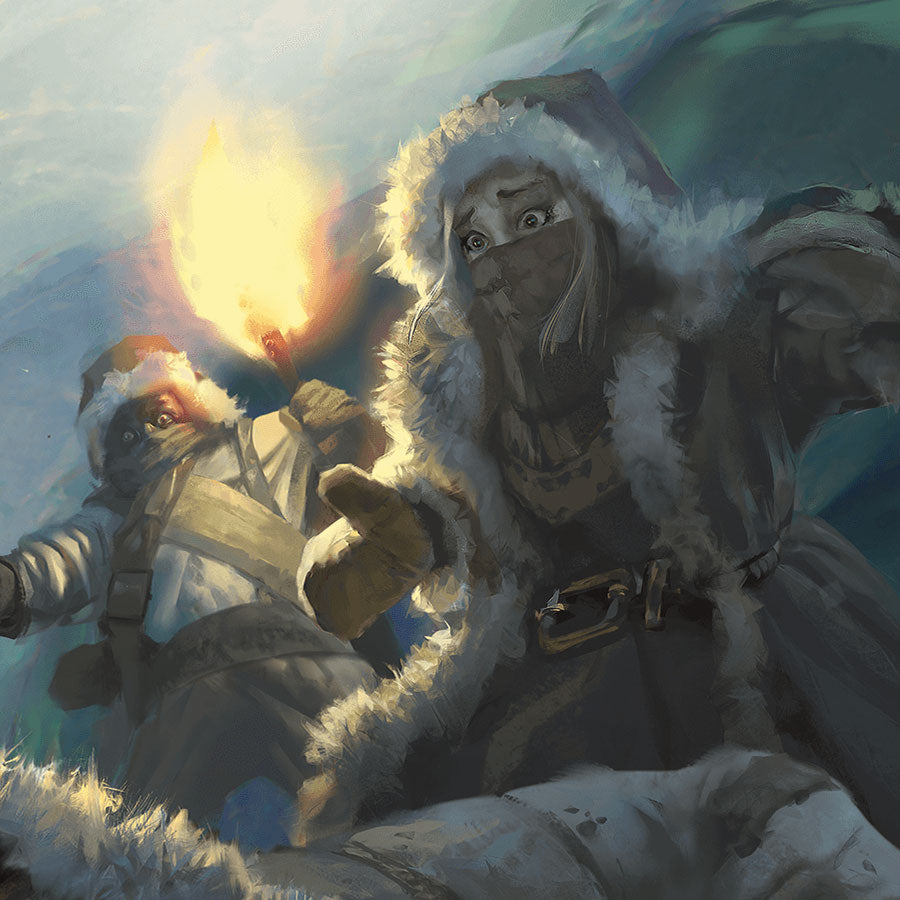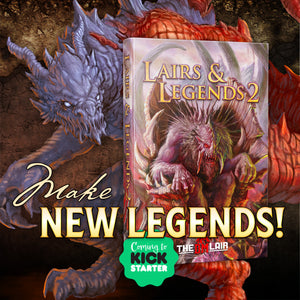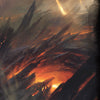10 Things All First-Time Dungeon Masters Need to Know

So, you decided to take the plunge. You’re going to be a dungeon master for the FIRST TIME ever. GOOD LUCK!
Look, being a game master is amazing; it’s some of the most fun I’ve ever had in my life. However, if you’re a new game master, there are 10 things you ABSOLUTELY MUST KNOW. Take it from me; as someone who’s been a game master for longer than I’ve been alive (no that’s not supposed to make sense), these ten things will save you lots of pain and frustration.
By the way, if you’re a busy game master looking to reduce your prep time, we got your back. Every month my team and I publish a new issue of Lair Magazine loaded with 5e and Pathfinder 2e encounters, adventures, monsters, puzzles, traps, maps, and other resources you can use in your gams. Everything is designed to be dragged and dropped into your existing campaign, too!
Watch or listen to this article by clicking the video below.
#1 You don't need to have the rules memorized.
You only need to know and understand the core, most basic rules. It's okay to ask the players how the things that their characters can do work mechanically.
I’m running a Pathfinder 2 campaign now, and I don’t know all the rules. I’m doing the best I can and figuring things out as I go. Also, remember that players can help with the rules!
Now, it's okay to look things up, but it's better to just make a call and look it up after the game.
Also, don’t forget, the GM has final call. Don't let the players argue you into a corner. Listen to the players, consider their point of view, but you make the final call.
If you don't know it, make it up. It’s better to run a SMOOTH game that keeps going than a PERFECT game that stops constantly to look up the rules. Even pro and celebrity GMs like Matt Mercer and Brennan Lee Mulligan don't have every rule memorized and improvise things during play. A lot of people get into the trap of thinking that celebrity GMs are the "gold standard," but even they make a lot of mistakes.
#2 It's okay to make mistakes.
You're not going to be perfect on your first go. You're not going to be perfect on your second go. You're never going to be perfect... everyone makes mistakes. In my PF2e game, I’m making tons of mistakes. That’s life, learning rules. Even for my 5e games, which I’ve been running for nearly a decade, I still make mistakes.
Pacing can help mitigate this: don't rush things... run the game at a speed that works for you and your players.
Remember, too, it's okay to admit your mistakes to your players and make changes as a result. Vulnerability! Be open. Share. Work together with players to improve. The more you GM, the better you'll become... practice makes better.
#3 No matter how much you plan, you probably won't be ready for everything that happens.
Every GM preps differently. My gold standard is to PLAN or prep everything that I don’t want to improvise at the game table; then those things I feel comfortable improvising, I don’t prep them out.
Personally, I must plan these things: adventure backstory (premise), maps, and encounters. Everything else I can improvise: NPCs, dialogue, room descriptions, etc.
Prepare the game to your own comfort level. Don't let someone else's opinion on how much prep you should do make you prep more or less than you're comfortable with. You need to find out what works best for YOU!
Every GM gets surprised sometimes and has to make things up as they go along. I have an entire video on how to improvise at the game table.
#4 You don't have to be a player first.
Surprisingly few first-time GMs have been players first. If you had to play before GMing, the hobby never could have started in the first place!
When I first started GMing, I saw a cool fantasy book with pictures of monsters and adventurers on the cover in a store, and my grandma bought it for me. Only at home did I find out with was a D&D game—the 2nd Edition Players Handbook—and then starting to run it for my brother and then later friends.
I NEVER WAS A PLAYER FIRST. I was a DM first and did so all through high school and college. I was only a player until after college, and then discovered DMing was way more fun anyway. Now I’m a player really only when I go to conventions.
#5 You don't need to spend a fortune.
You don't need every book. You don't need miniatures and fancy terrain. Likewise, you don't need fancy tokens or VTT maps... a lot of that can be found for free online! You don't need more than one or two sets of dice. (Some dice goblins will cry heresy at this…)
My experience with playing in games with lots of fancy minis & terrain is that they can suck just as much as any other game of D&D. I’ve been in other games that use almost nothing for physical representations, even theater of the mind games, and they are amazing. Stuff doesn’t make or break a game, and spending more money does NOT necessarily a better game make.
Finally, don’t let the fancy set-ups you see in streaming games make you feel like you need to match them. Streaming shows often have their own budgets to "set pieces.”
#6 You don't have to create an entire world.
A misconception of many folks is that the GM must prepare the ENTIRE WORLD and ENTIRE CAMPAIGN before beginning. That could be YEARS of work – though perhaps enjoyable work – with no guarantee your players will wait that long, that you’ll find players, etc.
JUST START PLAYING!
You only need the region where the first couple of sessions or your first adventure is going to take place. You can grow the world from there. Focus on the first town, the locations immediately around it, and the first adventure. Only look beyond those things if it's something that you want to do and enjoy doing.
Remember, the players can help create the world with their characters histories and actions. You can even ask your players to help world build.
FINALLY, remember that there are pre-made campaign settings that you can just buy and use instead of building your own. I’ve run most of my campaigns in Forgotten Realms over the years, and right now I’m transitioning to Eberron because it is amazing.
If you’re interested, I have a couple videos on my channel about world-building.
#7 You as a game master don't tell a story!
This is probably one of the most erroneous things I hear game masters say, when they claim to be storytellers. And my customary response is to shout: “You're not writing a book; you're running a game.”
But we need to qualify that a bit. You see, the game masters DOES participate in the storytelling, HOWEVER so do the players. EVERYONE at the game table is a storyteller, the GM and players.
The game master sets up the backstory and premise of the situation or adventure at hand: the evil princess has kidnapped the dragon’s two children and is demanding the dragon raze to the ground the next kingdom over. And then the players continue developing the story when they decide what their characters say and do in response. And of course, the GM continues to participate in storytelling as they decide what the bad guys do while the players are playing through the adventure.
Tabletop roleplaying games are COLLABORATIVE storytelling games – everyone participates.
As a GM, it's okay to know what kind of story you want to "tell," but you shouldn't define the beginning, middle, and end. The players should be the ones filling in the details of the story. The GM facilitates the story by providing objectives, opposition, and the environment around the characters.
Don’t forget that you are also playing a GAME, which is where dice and game mechanics come into play. There needs to be a balance in both the narrative and the game.
By the way, I have an entire video where I rant more about the GM not being the only storyteller if you’re interested.
#8 The players are supposed to have fun, but so are you!
Some people will tell you that as the GM it’s your JOB to make sure EVERYONE is having fun. Well, that’s just not true. In fact, I would say it’s an IMPOSSIBLE task.
In respect to FUN, your role as the GM is to ensure that the ENVIRONMENT exists where everyone MIGHT have fun. However, you simply cannot ensure that fun happens.
When my friends and I started playing Pathfinder 2e, we weren’t having fun all the time. My players and I are experiencing some frustrations, many of them I’m sure are because it was a new game system that we are getting a feel for. So, what I do as a GM is pay attention to my players, get feedback from them, and adjust things on my end so that I could create better circumstances so that fun is MORE LIKELY to happen.
Things to remember:
Not every player is a perfect fit for every table, and the GM shouldn't feel like a failure if someone just isn't enjoying the GM's style. I’ve had players who didn’t like my games and bounced for whatever reason. It happens to every game master.
If players aren't enjoying themselves, try to change things up and see what works. It's okay to improvise and find out what kind of game the players want, as long as it's also the kind of game that you want to run.
Finally, NEVER FORGET you are supposed to enjoy the game as well. It shouldn't feel like work. You need to make sure that the game you are running is a game YOU enjoy. If the game master stops having fun, the game is probably doomed and won’t last for long.
#9 It's okay to set boundaries.
You don't have to allow every race, ancestry, or class, especially if you don't own the books they come from. You don't have to allow homebrew available on the internet. Even "official" homebrew from professional developers can be poorly balanced.
You can also limit what is available based on the game world you are using or creating. Not every world has the same magic or tech levels. Some GMs may not want gunslingers and inventors like alchemists and artificers. Some GMs may want to run a low magic world and only allow wizards and not sorcerers, for example
There may be pressure from players to allow anything and everything. You need to resist this if it doesn’t fit into the game you want to run.
Most players are OKAY with some boundaries, especially if the game is tons of fun. However, if you have a player that just THROWS A FIT anytime X thing they want isn’t allowed in the game, well you’re probably better off without players like that anyway.
#10 Remember, there are a lot of different games out there.
Yes, D&D is one of the most popular and well-known systems, but it isn’t necessarily the best fit for everyone. My recommendation is to try out a bunch of different systems to see which ones you like. Sure start somewhere, but don’t stop experimenting.
Something I make an effort to do is when I go to conventions, I try out a new game system. For example, when I went to Gary Con last year, I played in a few Castles & Crusades games. Other conventions, I’ve played Call of Cthulhu. I think it’s really beneficial to dabble in several systems to see which you enjoy the most.
Currently, I’m enjoying Pathfinder 2e the most.
At the end of the day you want to find a game the works with the genre and type of world you want to run in. Find a game with a level or rules "crunch" that you're comfortable with. Find a game that fits the kind of stories you and your players want to “tell.”
Get Professional 5e and PF2e Resources for Your Games
Now as you probably know, being a dungeon master isn’t always easy. Not only do you need to run the game at the table, but you also need to prepare the adventures, traps, puzzles, NPCs, and other game elements in advance.
Would you like to shortcut just a wee bit of your DM prep work from time to time? With Lair Magazine you can. Every month we release a new issue of Lair Magazine that contains a plethora of 5e and Pathfinder 2e game master resources to help you reduce your prep time and run awesome games.
For instance, every issue contains adventures designed to be FAST to prepare before the game, and EASY to reference during the game. And each adventure comes with maps designed for use on virtual tabletops. You’ll also get other resources such as traps, puzzles, and monsters!
Lair Magazine comes in versions for both 5e and Pathfinder 2e!
Reduce some of the frustration and effort of being a game master. Check out all the Lair Magazine issues available here, and get more bang for your buck with the Lair Magazine bundles!
-
Posted in
Game Master How-To Articles







